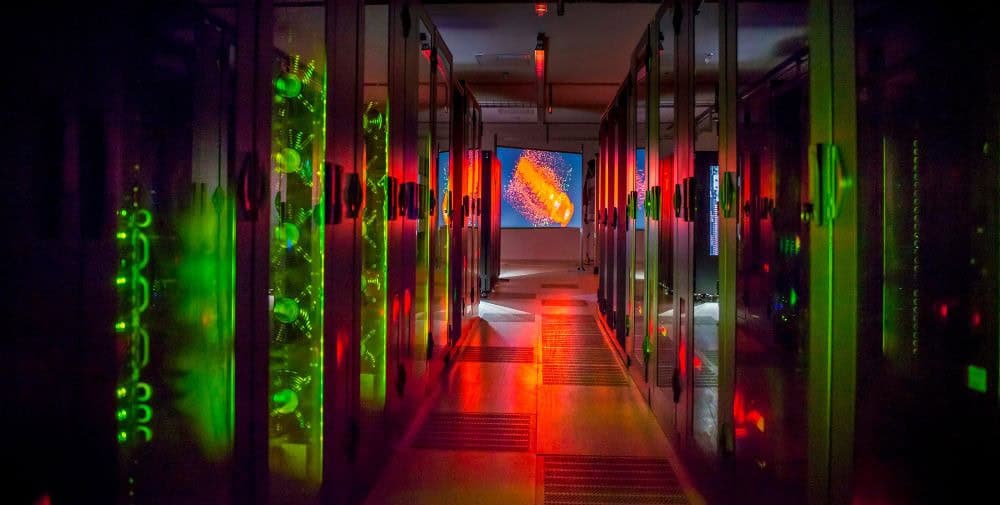
During a one-year pilot phase, which has now started, nine Helmholtz Centers at eight locations are opening up their HPC infrastructure to industry. HPC Gateway is intended to bring about closer links between research and industry and promote the formation of regional innovation ecosystems in the long term. The aim is to gain a precise understanding of the specific requirements of industry for the use of AI and to develop long-term AI service offerings. The process knowledge that the companies contribute to the various projects plays a central role in the development of such service offerings.
The participating Helmholtz centers not only provide companies with access to HPC infrastructure on the basis of cooperative projects, but also advise them on how they can apply their problems to it and process their data for it. The companies are also given access to extensive data sets. AI consultants and IT managers as well as scientific experts from the Helmholtz Centers are available to provide advice. In addition, a training and further education program for users from science and industry is planned to ensure the profitable use of HPC capacities and corresponding AI methods in the long term.
“With HPC Gateway, the Helmholtz Association is making an urgently needed and measurable contribution to the German government’s AI strategy. This initiative will make numerous companies in the field of artificial intelligence more future-proof,” says Otmar D. Wiestler, President of the Helmholtz Association. “In this way, HPC Gateway can sustainably strengthen Germany as a science and business location in times of digital transformation.”
The partners from science and industry come together in the form of jointly designed pilot projects at the various locations and surrounding regions of the nine Helmholtz Centers. The bilateral projects are co-financed by the companies. HPC-Gateway builds on experience already gained from previous projects, such as the Smart Data Innovation Lab (SDIL). SDIL is a Germany-wide network funded by the BMBF in which universities and non-university research institutions offer companies computing capacities, data cleanrooms and consulting services in the field of AI. The aim of HPC-Gateway is to roll out comparable services even more comprehensively and to examine which existing AI services can be integrated into the initiative. To this end, the Helmholtz Association is also working closely with the Fraunhofer-Gesellschaft, among others, with which comparable initiatives have already been launched, particularly at Forschungszentrum Jülich.
Two example projects of the initiative are:
Artificial Intelligence-driven Corrosion Testing (AICORR)
Construction materials used in the aviation industry are exposed to enormous environmental influences over the course of their service life, which can lead to material failure in the worst case. Protective coatings are considered to be the most effective way to increase the corrosion resistance and durability of the materials used while meeting strict safety requirements. As there is an urgent need to develop and implement new coating solutions with a low environmental impact, the “Artificial Intelligence-driven Corrosion Testing (AICORR)” project aims to significantly shorten the development cycles for such high-tech coatings. To this end, the Institute of Surface Research at the Helmholtz Center Hereon is working together with Airbus to develop a digital twin of long-term corrosion tests in order to replace time-consuming evaluation phases on a laboratory scale.
Center for Industrial Multiphase Flow Competence
Key technologies of the energy transition – from the production of green hydrogen and the cooling of electric car batteries to CO₂ capture from exhaust gases – are based on established industrial processes such as multiphase flow. Multiphase flows describe systems in which solid, liquid or gaseous substances circulate and interact with each other. The “Center for Industrial Multiphase Flow Competence” project uses modern simulation methods such as computational fluid dynamics (CFD) to better understand and optimize these complex flows. In addition to the Helmholtz-Zentrum Dresden-Rossendorf (HZDR), the companies BASF SE, MAHLE International GmbH and Sunfire AG – leading technology groups in the fields of chemical and process engineering, automotive engineering and hydrogen electrolysis – are participating in the project.
Helmholtz is investing a total of 18 million euros in HPC Gateway and is thus supporting the following Helmholtz Association sites:
- Research Center Jülich (North Rhine-Westphalia)
- Karlsruher Institute of Technology (Baden-Württemberg)
- Helmholtz-Zentrum Dresden-Rossendorf (Saxony)
- GSI Helmholtz Centre for Heavy Ion Research (Hesse)
- Helmholtz Munich (Bavaria)
- German ElectronSynchrotron DESY (Hamburg)
- Helmholtz Center Hereon (Schleswig-Holstein and Lower Saxony)
- Helmholtz Center Berlin for Materials and Energy (Berlin)
- Max Delbrück Center (Berlin)
– – – – – –
Further links
👉 www.hzdr.de
Photo: Detlev Müller / HZDR




